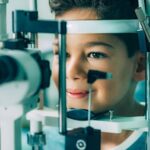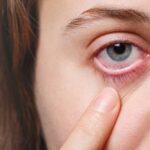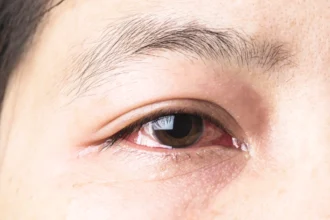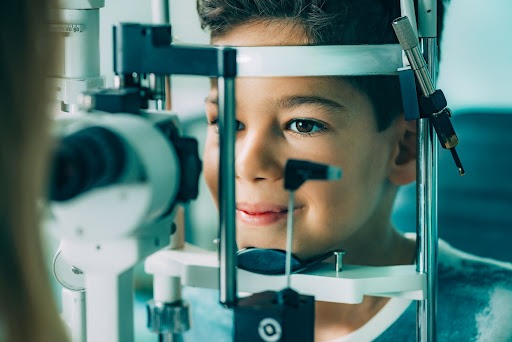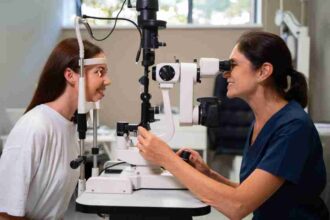Introduction
Smoking is widely known to affect the heart and lungs, but its harmful effects on the eyes and vision are often overlooked. Cigarette smoke contains toxic chemicals that can damage the eyes over time, leading to vision impairment and even blindness. Understanding how smoking impacts eye health is crucial for prevention and early intervention.
The Relationship Between Smoking and Eye Health
How Smoke Affects the Eyes
Tobacco smoke contains thousands of harmful chemicals such as nicotine, carbon monoxide, and tar. When inhaled, these toxins enter the bloodstream and can damage delicate eye tissues.
Increased Risk of Oxidative Stress
Smoking increases oxidative stress and reduces the body’s ability to repair cellular damage. This accelerates aging in the eyes and heightens the risk of degenerative eye diseases.
Common Eye Conditions Linked to Smoking
Age-Related Macular Degeneration (AMD)
- Definition: A disease that damages the central part of the retina (macula), leading to blurred or lost central vision.
- Impact of Smoking: Smokers are 2–4 times more likely to develop AMD than non-smokers. It also accelerates the progression of the disease.
Cataracts
- Definition: A condition where the eye’s natural lens becomes cloudy, affecting vision.
- Impact of Smoking: Smoking doubles the risk of developing cataracts and can lead to earlier onset.
Dry Eye Syndrome
- Definition: A condition where the eyes don’t produce enough tears or the tears evaporate too quickly.
- Impact of Smoking: Exposure to cigarette smoke irritates the eyes and worsens dryness and inflammation.
Diabetic Retinopathy
- Definition: A diabetes-related complication that damages the blood vessels in the retina.
- Impact of Smoking: Smoking exacerbates diabetes and contributes to more severe retinopathy in diabetic patients.
Uveitis
- Definition: Inflammation of the uvea, the middle layer of the eye.
- Impact of Smoking: Smokers are at significantly higher risk of developing uveitis, which can lead to vision loss.
How Smoking Affects Vision Functionally
Reduced Night Vision
Smoking limits the oxygen supply to the retina, impairing the ability to see well in low-light conditions.
Poor Contrast Sensitivity
Smokers often have trouble distinguishing contrasts, which can affect reading, driving, and recognizing facial expressions.
Slower Wound Healing After Eye Surgery
Postoperative recovery from eye surgeries (like LASIK or cataract removal) is delayed due to reduced blood flow and oxygenation in smokers.
Secondhand Smoke and Eye Health
Effects on Children
Children exposed to secondhand smoke are more likely to develop eye infections, allergies, and dry eyes.
Risk to Non-Smoking Adults
Non-smokers regularly exposed to secondhand smoke also face elevated risks of developing cataracts and AMD.
Benefits of Quitting Smoking for Eye Health
Reduced Risk of Eye Disease
- Risk of AMD and cataracts decreases after quitting, though some damage may be irreversible.
- Vision quality can stabilize and improve with lifestyle changes.
Improved Blood Circulation
Enhanced oxygen and nutrient delivery to the eyes helps repair minor damage.
Stronger Immune Response
A healthier immune system fights off infections and slows progression of degenerative diseases.
Prevention Tips for Protecting Eye Health
Quit Smoking
The single most effective step for protecting your vision from smoking-related damage.
Schedule Regular Eye Exams
Early detection of eye issues allows for timely treatment and monitoring.
Wear UV-Protective Eyewear
Smoking makes the eyes more sensitive to UV damage, so sunglasses are essential.
Maintain a Healthy Diet
Foods rich in antioxidants—like leafy greens, citrus fruits, and fish—help counteract damage from smoking.
Conclusion
Smoking is a major, yet often underestimated, threat to eye health. From increasing the risk of serious eye diseases to impairing daily visual function, its effects are significant. The good news is that quitting smoking can drastically improve your eye health outlook. Whether you’re a smoker or exposed to secondhand smoke, taking proactive steps today can protect your vision for the future.
FAQs
1. Can quitting smoking reverse eye damage?
Quitting can slow or stop the progression of many eye diseases, but some damage (like that from AMD) may be irreversible. Early action is key.
2. How long after quitting smoking does eye health improve?
Improvements in circulation and reduced oxidative stress can begin within weeks to months, though full recovery may take years.
3. Does vaping affect eye health the same way as smoking?
While vaping is often marketed as a safer alternative, it still exposes the eyes to harmful chemicals and can contribute to dry eyes and other issues.
4. Are occasional smokers at risk of eye problems?
Yes, even occasional smoking increases the risk of conditions like cataracts and AMD. The risk increases with duration and frequency.
5. What are the best foods to eat for healthy eyes after quitting smoking?
Leafy greens, carrots, sweet potatoes, eggs, salmon, oranges, and nuts all support eye health and repair.



